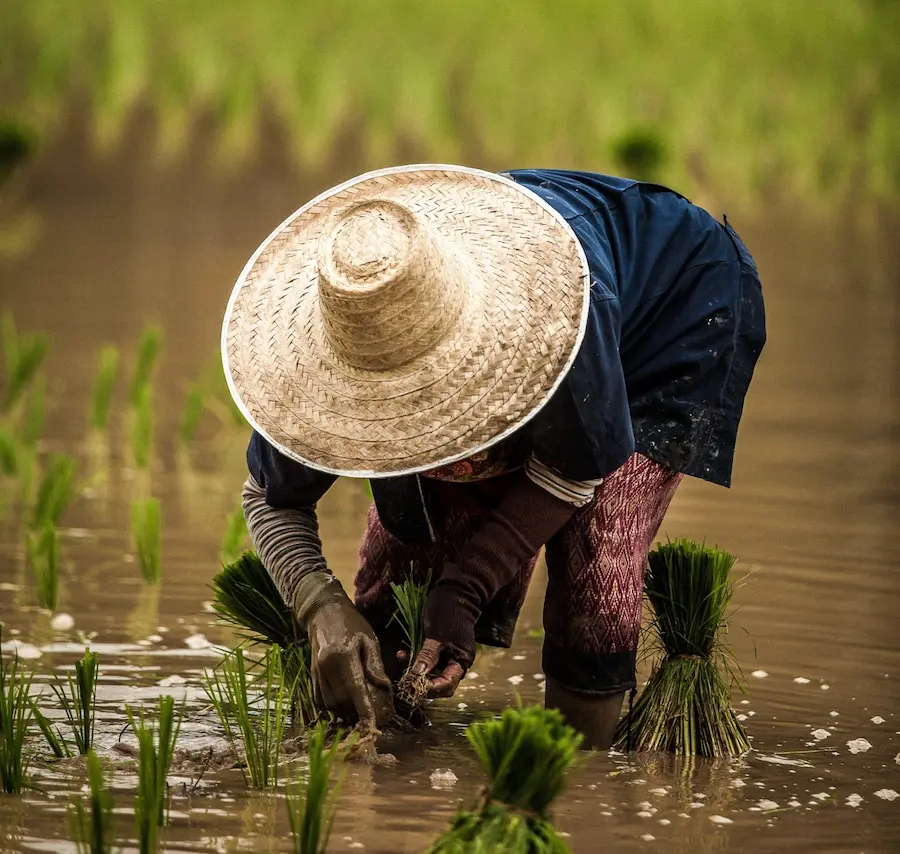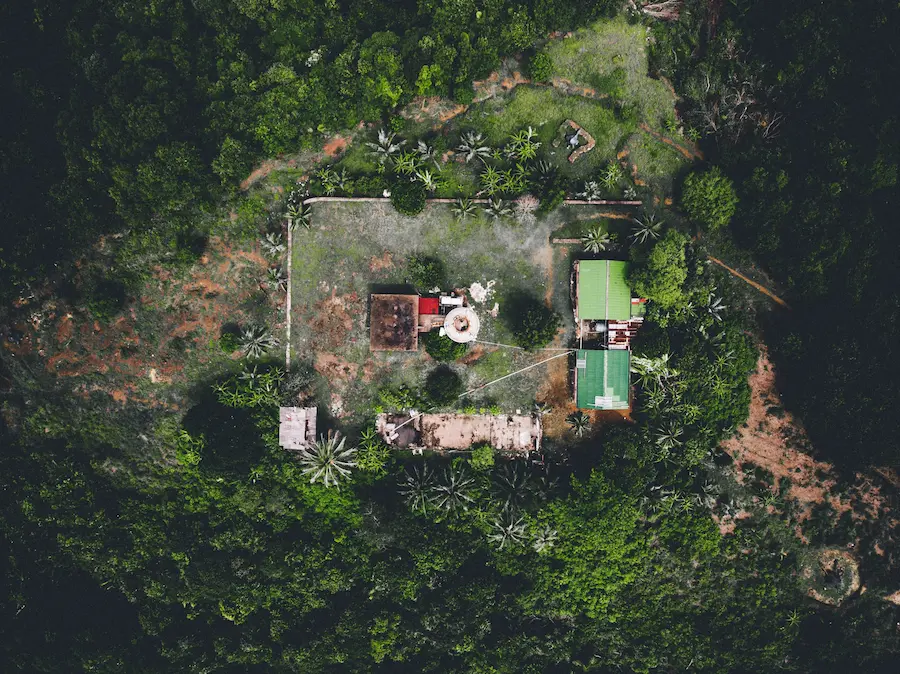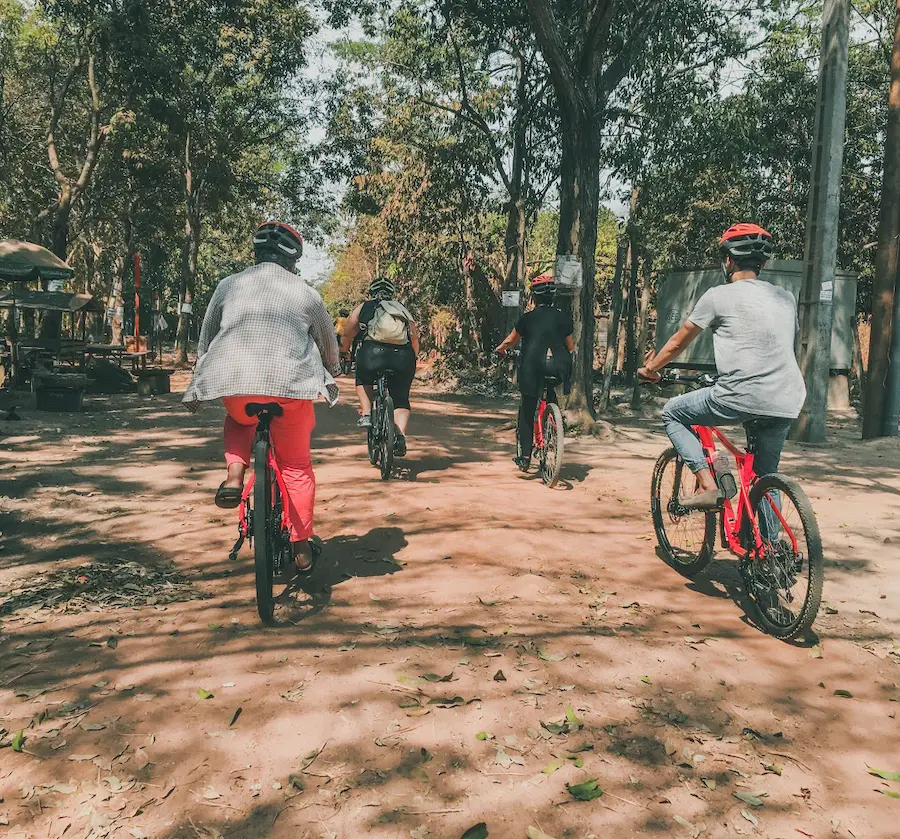Behavior change at scale is about pushing beyond the obvious to arrive at what truly matters to people
Bottom of the pyramid
Almost half of the world’s population lives on less than $5 a day, barely enough to meet basic needs. They are farmers, fishermen, market vendors, factory workers, taxi drivers, grandmothers, refugees, and others who are disadvantaged, and often overlooked and underestimated. Initiatives aimed at improving their lives fail because they are disconnected from their context. Solutions cannot be airdropped; they must arise from within the context and the communities in order to create tangible value within their daily lives.
Frontline staff
These are the unsung heroes who work tirelessly for the progress of their communities: health workers spreading risk prevention messages, agri-extension agents demonstrating improved farming practices, local authorities who help families after a typhoon, or mobile money agents helping families send money home. Equipping frontline staff with the right solutions and tools allows them to break through barriers of resistance and inspire their communities to march forward.
System influencers
For behavior change to achieve scale, solutions need to integrate with existing systems such as national and local governments, commercial markets, community and religious structures, and information channels. Orchestrating our initiatives with the right system players and stakeholders ensures that innovations are sustainable. This collaboration is the key to achieving positive change for millions.
We focus on four global issues
- Health & wellbeing
- Food & sustainable agriculture
- Environment & climate change
- Economic & financial inclusion
Every person has the right to a healthy life
With health risks and emergencies, having access to the right information, products, and services saves lives. The adoption of healthy habits and routines ensures a better quality of life for everyone. We believe behavioral science can be used to design nudges in health clinics to increase hand washing, to send reminders to elderly to take tuberculosis (TB) pills daily, and to design affordable products such as latrines.
In Cambodia, promoting the use of DIY hand hygiene stations was about finding the right role model.
Today, 23% of the world’s children are stunted
COVID-19 will only worsen the numbers. More efforts are needed to ensure access to safe, nutritious, and sufficient food for all people all year round, and to eradicate all forms of malnutrition, whether it’s designing incentives to get farmers to use less chemicals, helping pregnant women and babies to eat nutritiously, or getting food vendors to sell more healthy snacks in front of schools.
In Myanmar, the intervention for child nutrition took the form of a banana shaped bag.
A plastic bag that is used for 12 minutes can take longer than 25 years to break down
It affects the entire planet, but is most severe on those living in poverty and in vulnerable locations. Typhoons, floods, droughts, and burning forests are on the rise, disrupting lives and livelihoods. There is no time to waste when it comes to the adoption of renewable energy products, renovating houses to withstand typhoons, or designing better solid waste management systems.
In Cambodia, the solution to the plastic bag menace was changing the default.
Financial access facilitates day-to-day living and helps families and businesses plan for the expected and the unexpected
Lack of financial services compromises their ability to set long term goals, build assets, grow businesses, protect from financial risk, and save for their futures. Digital and mobile technologies provide the opportunity to address these challenges. New products can bring gig workers into the mainstream. Financial literacy can inculcate sound financial practices.
In Malawi, it was about making sure that farmers’ financial fortunes did not change with the weather.
We help organizations design, test, and implement solutions that change behaviors at scale

Behavior change
intervention design

Social
marketing

Strategic behavior
change communication

Product and
service design








